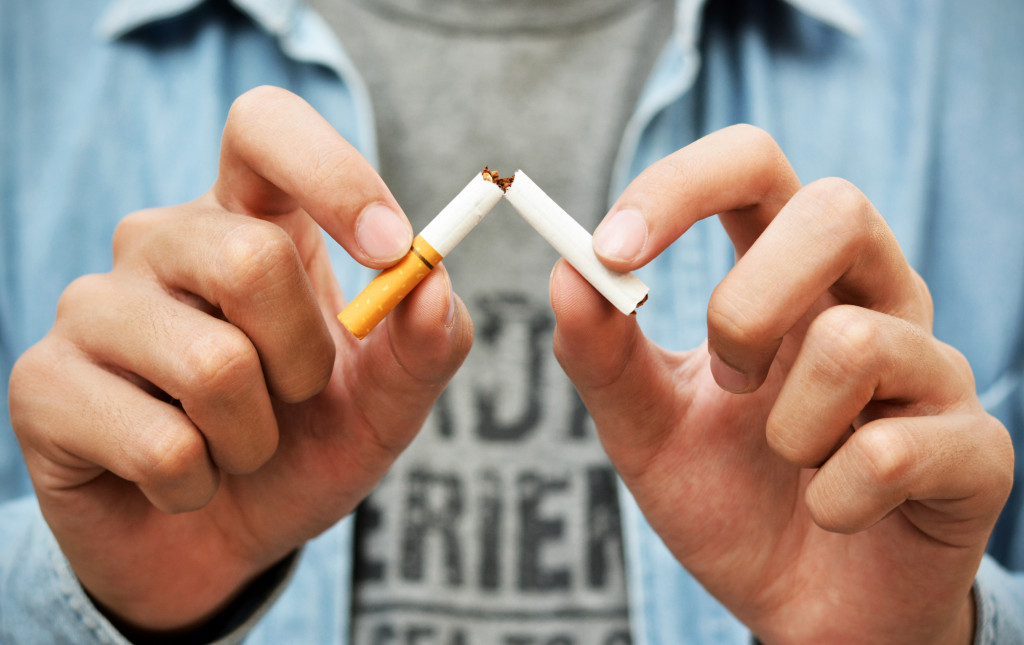Smoking is one of the leading causes of preventable death in the United States, responsible for more than 480,000 deaths each year. It’s also a hard habit to break. If you’ve recently quit smoking, congratulations! You’ve taken a big step toward improving your health. Now that you’ve stopped, it’s essential to prevent relapse and keep your health on track. Here are a few things you can do:
1. Stay busy and distracted.
Idle time can lead to cravings, so find things to keep your hands and mind occupied. Consider taking up a new hobby, going for walks or runs, or meeting up with friends more often. According to the National Cancer Institute, people trying to quit smoking should avoid places where they used to smoke and activities that they associate with smoking.
For example, if you always smoke while watching TV, find something else to do during that time, like reading or working on a puzzle. You might also want to avoid drinking alcohol, which can lead to smoking. Many ex-smokers find that keeping their hands busy helps them stay smoke-free.
2. Avoid trigger foods and drinks.
Certain foods and drinks can trigger cravings, so it’s best to avoid them altogether. Foods high in fat and sugar are particularly triggering, so steer clear of pastries, candy, and fast food. Coffee, soda, and energy drinks can also be triggers, so try to cut back or switch to decaffeinated versions.
Some people find that nicotine replacement products, like gum or patches, help with cravings. However, these products can be addictive and are not recommended for long-term use. They are only meant to be used as a short-term crutch while you’re getting used to not smoking.
3. Get your teeth whitened.
One of the many benefits of quitting smoking is that your teeth will start to look better. Stained teeth are one of the most visible signs of using tobacco, so getting them whitened can help you feel better about your appearance. You might even find that people treat you differently when they see that you’ve made an effort to improve your teeth.
There are many teeth whitening treatments available, both at-home and professional. Some people see results after just one treatment, while others may need multiple treatments to get the desired effect. If you’re considering this treatment, talk to your dentist to see what option is best for you.
4. Clean your house and car.
Get rid of anything that reminds you of smoking, including ashtrays, lighters, and cigarettes. Wash your clothes and clean your carpets to eliminate the smell of smoke. You might even want to consider repainting your walls. This will help you create a fresh start and rid your environment of any triggers.
You can also clean your car to make it a smoke-free zone. This will help you avoid smoking while driving, which can trigger many people. You may even consider getting a car air purifier to help remove any lingering smells.

5. Exercise.
Exercise can help relieve stress and tension, two common triggers for smoking. It can also help boost your mood and energy levels. Taking up a new form of exercise can also help you stay busy and distracted.
If you’re not used to exercising, start slow and gradually increase the intensity and duration of your workouts. There are many different types of exercise, so find something that you enjoy and that fits your lifestyle. Your local gym or community center can be an excellent resource for finding new activities to try.
6. Manage your stress.
Stress is a common trigger for smoking, so it’s crucial to find ways to manage it. Exercise, meditation, and deep breathing are all great stress-relievers. You might also want to consider talking to a therapist or counselor.
In addition to managing your stress, it’s also important to avoid stressful situations. Suppose you know that you’re going to be in a position that will be stressful, plan and have a strategy for dealing with it. This could involve taking a break, walking away from the situation, or using positive self-talk.
7. Talk to your doctor.
Finally, it’s essential to talk to your doctor about quitting smoking. They can provide you with resources and support to help you through the process. They can also prescribe medication to help with withdrawal symptoms and cravings.
If you’re thinking about quitting smoking, talk to your doctor about what you can expect and how they can help you. Quitting smoking is a big decision, but it can profoundly impact your health and wellbeing.
Quitting smoking is a challenge, but it’s well worth the effort. By preparing and being mindful of triggers, you can increase your chances of success. Many resources and support systems are also available to help you through the process. So if you’re ready to quit, don’t hesitate to seek help.




